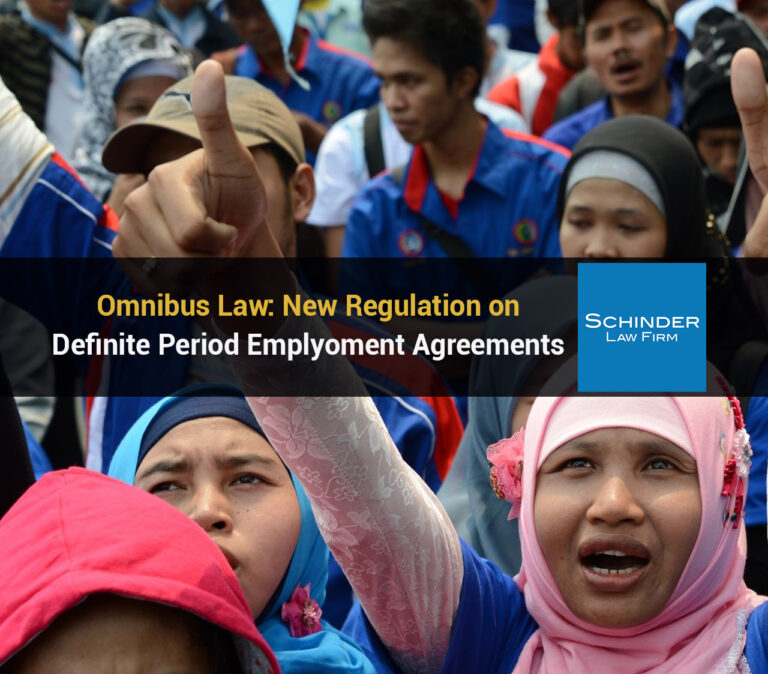
Omnibus Law: New Regulation on Definite Period Employment Agreements
Amid the COVID-19 Pandemic, we have been receiving queries from our clients with regard toemployment contract issues. One of the most frequently asked questions is about the definite period employment agreements. In businesses, such as drilling services, construction , or any other companies having businesses based on projects , the definite period employment contracts are the most preferable. Following Article 59 par. 3 of Law No. 13 of 2003 concerning Manpower…

Positive Investment List vs Negative Investment List
The Job Creation Law (Indonesian: Undang-Undang Cipta Kerja), officially Law No. 11 of 2020 (hereinafter referred to as Omnibus Law), is a bill that was passed on 5 October 2020 by Indonesia’s People’s Representative Council (DPR), and enacted on 2 November 2020 to create jobs and raise foreign and domestic investment by reducing regulatory requirements for business permits and land acquisition processes.
Several regulations for the implementation of the Omnibus Law have been issued. Generally, it is to improve the…
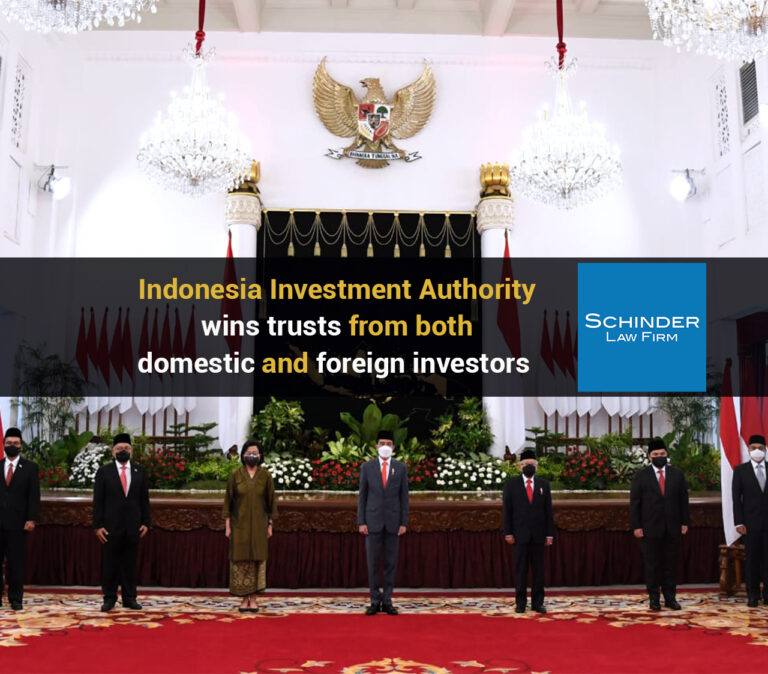
Indonesia Investment Authority wins trusts from both domestic and foreign investors
The Indonesia Investment Authority (INA) which was set up in January 2021 is an institution for investment endowment fund management established by Law to increase and optimize the value of state assets in the long term to support sustainable development. It has won enormous interests and trusts from both domestic and foreign investors, especially in the field of infrastructure.
“With a strong legal foundation and political support as well as a great supervisory board …
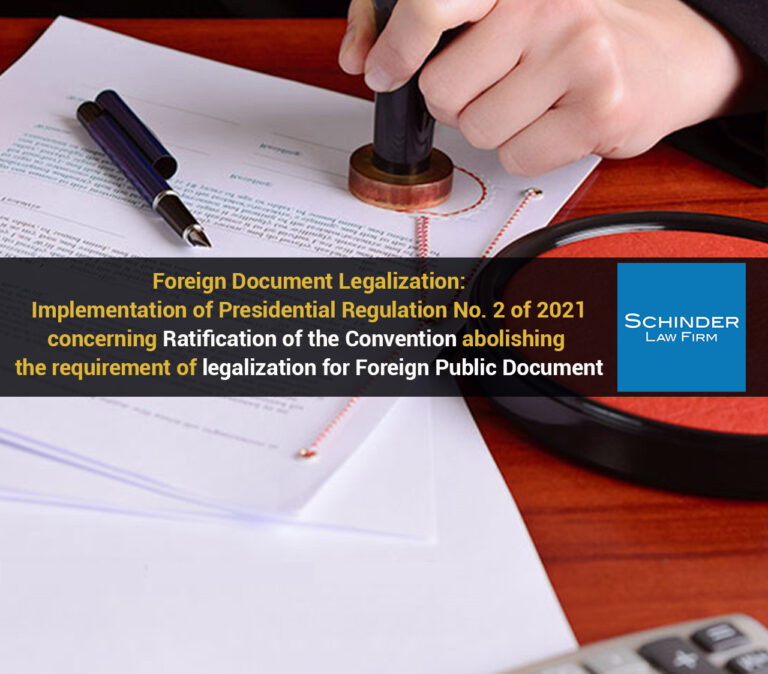
Foreign Document Legalization: Implementation of Presidential Regulation No. 2 of 2021 concerning Ratification of the Convention abolishing the requirement of legalization for Foreign Public Document
In January 2021, Presidential Regulation No. 2 of 2021 concerning Ratification of the Convention abolishing the requirement of legalization for Foreign Public Document (“PR 2/2021”) was enacted by the Government. According to the Convention abolishing the requirement of legalization for Foreign Public Document (“Apostille Treaty”), there are four types of …
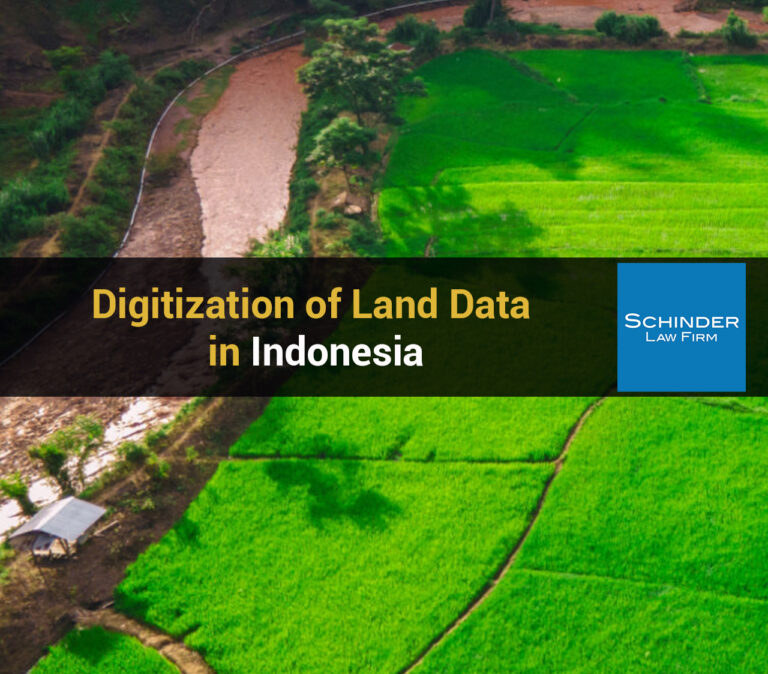
Digitization of Land Data in Indonesia
The Ministry of Agrarian Affairs and Spatial Planning (ATR)/ National Land Agency (BPN) or Kementerian Agraria dan Tata Ruang /Badan Pertanahan Nasional (“ATR/BPN”) has issued new regulations regarding electronic land certificates.
Starting in 2021, ATR/BPN will begin to use electronic land certificates as stipulated in the Regulation of the Minister of ATR/Head of BPN Number 1 of 2021 concerning Electronic Certificates which was signed on January 12, 2021. This means that proof of ownership of a land certificate or land book will…
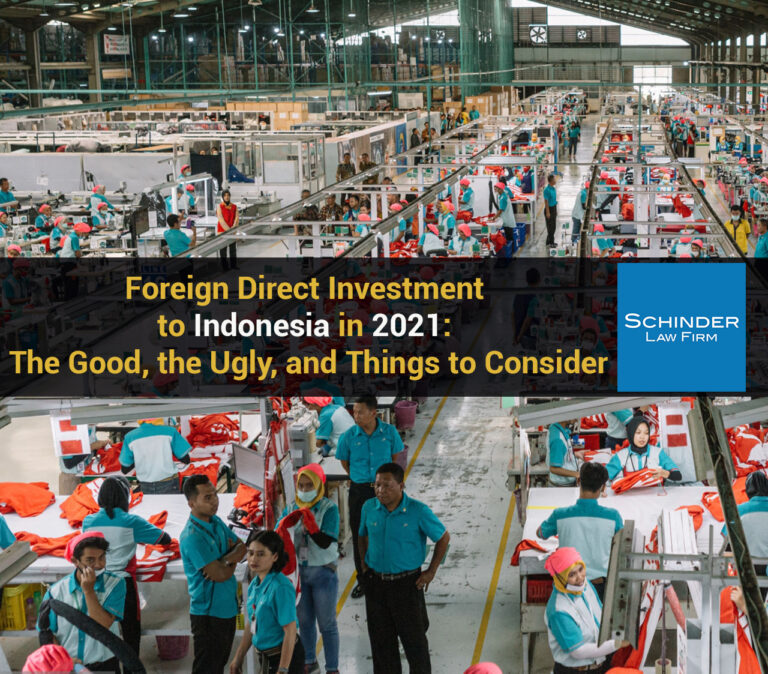
Foreign Direct Investment to Indonesia in 2021: The Good, the Ugly, and Things to Consider
When it comes to looking for investment options, expert advice is always welcome. On this occasion, we unveiled some consideration to investing in Indonesia. In recent months, foreign investors pulled out of Southeast Asian equity markets as increased uncertainty caused by the coronavirus pushed them to seek safer investments elsewhere. Consequently, this year’s stocks in Southeast Asia have decreased. Still, JPMorgan analysts believe the worst may be over. Some businesses and sectors remain enticing.
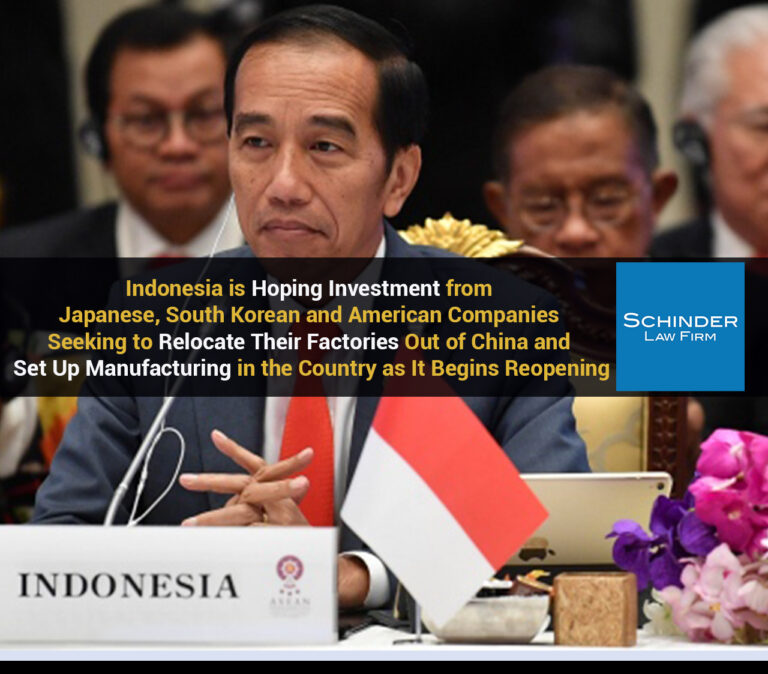
Indonesia is Hoping Investment from Japanese, South Korean and American Companies Seeking to Relocate Their Factories Out of China and Set Up Manufacturing in the Country as It Begins Reopening
Currently, many factories are trying to move out of China. They are looking for opportunities in the Southeast Asia region. If you are one of these business owners looking for the best place to invest your capital or move your factory, you can look at Indonesia. Our country is always available for all investors from many other countries…

How to Manage Layoffs in Times of COVID-19 Crisis With Care
COVID-19 has had a devastating effect on many businesses around the world and Indonesia, although the number of confirmed COVID-19 cases are very low in comparison to its vast population, is affected the same way as other countries. Many companies have experienced a sharp drop in revenue while their fixed costs have largely remained at the same level. This is also affect the foreign investment in Indonesia. Indonesia has recorded a further decline in foreign direct investment realization in the second quarter this year, as the COVID-19 pandemic batters both the national and global economy….

New Rules on Business Continuity Plans in Indonesia – What You Should Know and What you (Don’t) Have to Do
In principle, all companies should have a so-called business continuity plan – commonly known as “BCP” – in place. Business continuity planning is the process a company undergoes to create a prevention and recovery system from potential threats such as natural disasters or cyber-attacks. It is designed to protect personnel and assets and make sure they can function quickly when disaster strikes…

Signing Documents in Times of COVID-19 and E-Signatures: Much Ado About Nothing?
Some parts of Indonesia, and Jakarta in particular, have again went into a lockdown as of mid-September 2020 as a result of COVID-19. Although the lockdown is scheduled to only last for two weeks, yet additional lockdowns may be necessary. Either way: with or without social distancing, meeting in person has become much more difficult. Many key decision makers work from home and prefer to not meet others in person in face of the risk of getting infected. This raises the question on what the formal requirements are for closing a deal in Indonesia and, in particular whether contracts and other…
Practice Area
- Dispute Resolution
- Foreign Direct Investment
- Business Formation, Mergers and Acquisitions
- Land and Property
- Construction and Real Estate
- Employment and Labor
- Environmental Law
- Bankruptcy, Insolvency and Restructuring
- Aviation and Shipping
- White Collar Crime
- Intellectual Property and IP Dispute
- Privacy, Data Protection and Cyber-Security